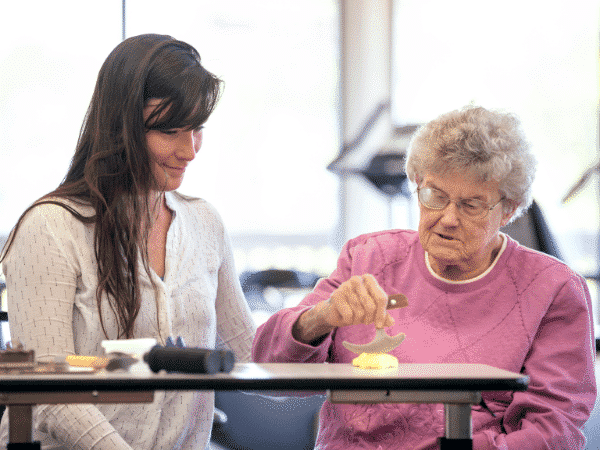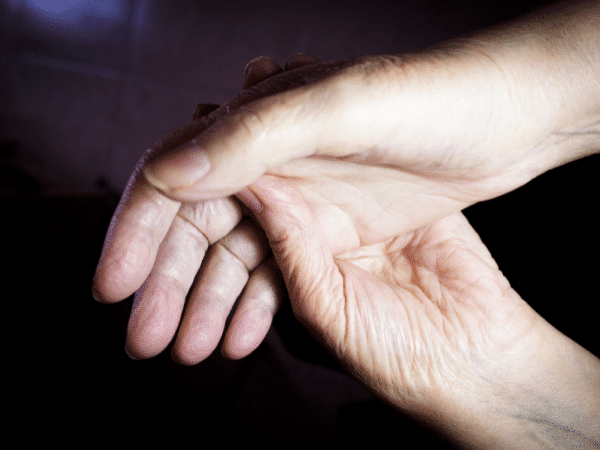The impact of drugs and alcohol on older adults is different from their younger counterparts due to a variety of factors related to aging. Slower metabolism, a higher number of health problems, and isolation are common challenges older adults face that make them more susceptible to addiction. If you have senior family members and friends in your life, staying connected with them can have a major positive impact on their well-being and potentially reduce their risk for addiction.
Continue reading to learn more about addiction in seniors, and how you can help your senior loved one fight isolation and stay healthy as they continue to grow older.
Common Types Of Addictions In Older People
Alcohol is the most widely used substance among adults aged 65 years and older. About 65% of people in this group report that they engaged in high-risk drinking behaviors during the past year. According to the National Institute on Drug Abuse, the majority of admissions to addiction treatment centers among older adults are related to alcohol. Between 2001 and 2013, the rate of alcohol use disorder among seniors increased by 107%.
After alcohol, the most common type of addiction in older people is prescription opioid addiction. Opioids are used by an estimated 4% to 9% of seniors to reduce pain such as that caused by cancer and heart disease. Between the years 2013 and 2015, the number of seniors who sought treatment for opioid addiction increased by nearly 54%.
Other common addictions among older people are marijuana, nicotine, and benzodiazepine addiction. The rate of marijuana use among seniors increased from 0.4% in 2007 to 2.9% in 2016. On the other hand, the rate of nicotine use was eight in every 100 older adults. The CDC reports that between 2014 and 2016, benzodiazepines were prescribed to seniors during 51 out of every 100 physician office visits.
Why Painkiller Addiction Is Prevalent Among Older People
Compared with younger adults, older adults are more likely to suffer from one or more painful health conditions that are typically treated with opioids. Arthritis, migraines, and back pain are common pain conditions among seniors. Surgery and fractures from falls are other common reasons seniors may use opioids.

Older adults misuse painkillers more than they misuse any other type of prescription drug. The American Association of Retired Persons (AARP) reports that more than 40% of older adults use opioids at some point in their lives to reduce chronic pain. Opioids are usually only prescribed for a short time to reduce pain until it goes away. However, many seniors end up staying on these drugs for several weeks or months, which increases the risk for opioid misuse, dependence, and addiction.
Risk Factors For Painkiller Addiction In Older People
Seniors addicted to painkillers share many of the same risk factors for addiction. Metabolism tends to slow down with age, which makes the brains of seniors more sensitive to drugs including painkillers.
Common risk factors for painkiller addiction in older people include:
- Grief and/or the death of a spouse, friend, or pet
- Social isolation/living alone
- Mental illness, such as depression, anxiety, or PTSD
- Chronic pain
- Lowered immunity / weakened immune system
- Loss of income / financial difficulties
- Major life changes, such as retirement, divorce, or moving into an assisted living home
- Physical disabilities / reduced mobility
- Lack of friends, family, and strong social support system
- Poor memory, which may contribute to unintentional opioid misuse
- Avoidance coping styles
- Poor vision, which may lead to difficulty reading bottle labels
- Poor hearing, which may lead to difficulty understanding physician instructions
- Managing multiple prescription drugs
- History of substance abuse and addiction
The Emotional Pain Associated With Painkiller Addiction In Seniors
Painkiller addiction, as well as other addiction types, are often associated with negative feelings including guilt, worthlessness, and shame. These feelings can cause many addicted seniors to experience intense emotional pain. They may use a higher number of painkillers in an effort to self-medicate these symptoms. However, it only makes things worse.
Addiction can also lead to extreme isolation that causes emotional pain. Painkiller abuse makes it easy to disconnect from the outside world and avoid serious problems like financial difficulties and conflicts with others. Unfortunately, painkiller abuse cannot resolve these problems, which will remain and become more serious the longer they are left unaddressed. Seniors who suffer from painkiller addiction often don’t know where to turn for help. As a result, they remain stuck in emotional pain that fuels their drug abuse.
Why Seniors Need Family Support Now More Than Ever
Family support can often help seniors avoid feeling socially isolated and worthless—especially if they suffer one or more health problems that cause disability or that make them feel burdensome to others. Providing your senior loved one with friendship and support can go a long way toward lifting their mood. It makes them feel appreciated and lets them know they are not alone in their fight against poor health or substance abuse.
How To Support Your Senior Loved One In Retirement and Social Isolation
Major life changes such as retirement can sometimes lead to depression in seniors, especially when they don’t have a plan in place that involves staying busy and that gives them a purpose. Depression, boredom, and low self-worth are risk factors for addiction that can make your senior loved one more vulnerable.

Here are ways to support an elderly in retirement and may be in social isolation:
- Encourage them to take up a new hobby or activity, such as gardening or yoga.
- Involve them in community activities, such as volunteer work.
- Invite them to social and family outings such as potlucks, bowling, and mini-golf.
- Keep them physically active, such as by going on walks and enrolling them in swimming or dance classes for seniors.
- Make sure they eat healthy foods such as fruits and vegetables that contribute to higher energy.
- Give them one or more responsibilities, such as walking the dog or sweeping the sidewalk.
- Make plans to spend quality time together, such as having lunch once a week or doing a jigsaw puzzle together.
- Help them manage medications, especially if they take multiple medications that must be taken at different times throughout the day.
- Consider hiring a caregiver or moving them into a senior living home where they can be more social.
How Addiction In Older People Can Be Safely Treated
Older adults who struggle with substance use disorders can be safely and appropriately treated at addiction treatment centers for seniors. Many drug rehab centers are equipped and experienced to treat seniors who may be at higher risk for complications from substance abuse due to chronic illnesses such as pain, diabetes, and heart disease. These treatment centers often have inpatient programs for seniors who need acute medical care and close supervision while recovering from painkiller addiction and other addiction types.
Medical detox and behavioral therapy are the most common addiction treatments for painkiller use disorder. Medical detox involves the use of medications that reduce opioid cravings and other withdrawal symptoms. On the other hand, behavioral therapy helps seniors change harmful behaviors and attitudes, and find new purpose and meaning in their lives. Look for addiction treatment centers that offer both services to help your senior loved one experience a full and long-term recovery.
Summer House Detox Center is home to specialty rehab centers in Miami that can help seniors safely overcome painkiller abuse and addiction. Contact us today at 800-719-1090 to learn more about our many available treatment programs.
